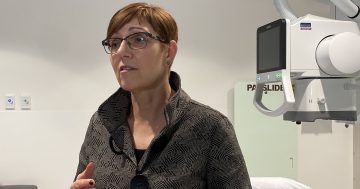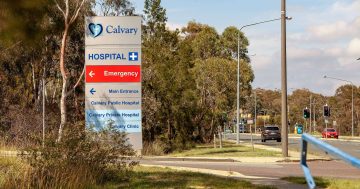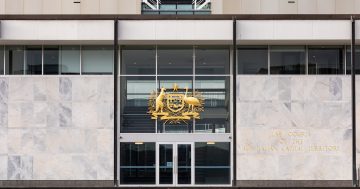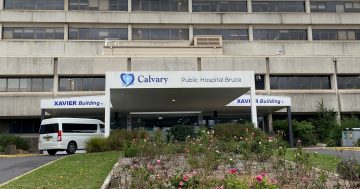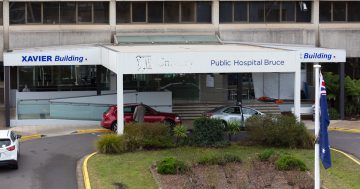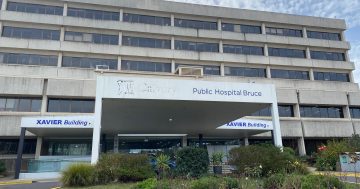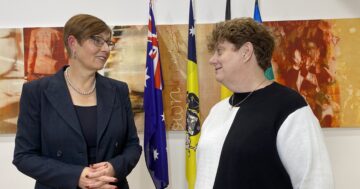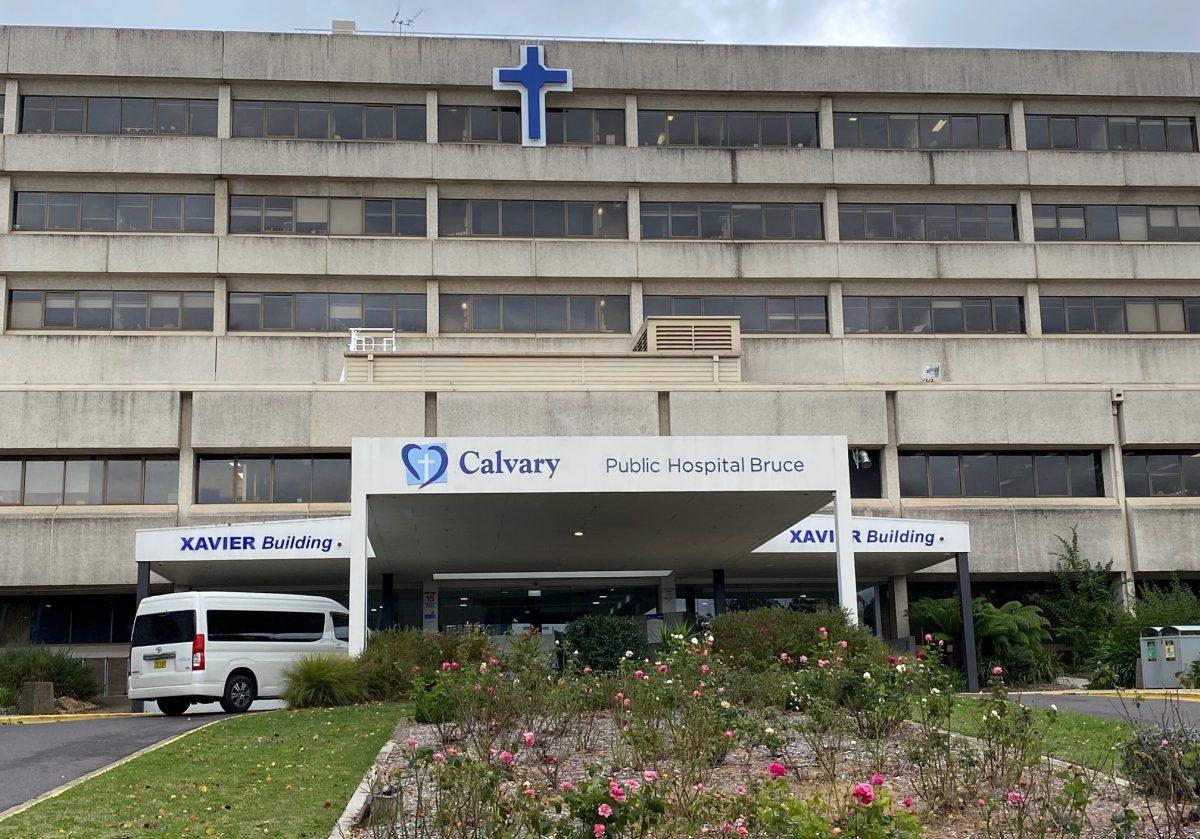
The government has introduced a bill allowing it to acquire the land on which Calvary Public Hospital Bruce sits to make way for a new hospital. Photo: Claire Fenwicke.
The ACT Labor-Greens government has been accused of removing normal democratic processes to enable debate on legislation related to the land acquisition of Calvary Public Hospital Bruce before it has been fully scrutinised by a committee inquiry.
Government Business Manager Mick Gentleman moved a motion in the Legislative Assembly on Thursday (11 May) to allow the Health Infrastructure Enabling Bill 2023 to be debated by the Assembly “prior to any committee inquiry or report”.
He said the Standing Committee on Justice and Community Safety would still examine the bill in its Legislative Scrutiny role. However, whether it could also be looked at by the Standing Committee on Health and Wellbeing was another matter.
“It doesn’t mean that there can’t be an inquiry, it simply means that the report from the inquiry or the response from government can’t interfere with the debate of the bill in a timely manner,” Mr Gentleman said.
“Legislative scrutiny is important and necessary … but the only thing that has changed by this motion is the requirement for reporting prior to debate in this place.”
Standing Orders 174 and 175 state that when bills are presented to the Assembly, they should be referred to relevant standing committees for consideration into whether an inquiry will be held. If an inquiry is held, the bill cannot be dealt with by the Assembly until the report has been delivered.
Mr Gentleman’s motion suspended the requirements of these standing orders.
He argued it was important to have a debate on the bill in a timely manner to provide assurance to Calvary staff and patients about what was happening with the acquisition of their hospital without delay.
The Canberra Liberals held a different view.
Acting leader Jeremy Hanson called the process “shameful”, questioning the point of even having an inquiry if decisions could be made by the government before a report was issued.
“It makes a nonsense of the process … [it’s] a circumvention of the democratic processes,” he said.
“This is legislation which I think is probably the most significant piece of legislation in this term of government, and the decision not to follow due process and have an inquiry and examine these issues, it’s simply undemocratic. It is a trampling of process.
“This is a dictatorial-style stitch-up.”
Mr Hanson accused the government of “hiding behind staff” by saying the bill needed to be dealt with in a timely manner so they had certainty about their future, questioning the “need for a rush”.
He claimed Calvary staff had been “hijacked” by the announcement and that not having an inquiry denied them and the community having their say.
“What’s happened today is shameful, it is disrespectful, it is egregious, and today the democratic processes of this Assembly have been weakened,” Mr Hanson said.
He confirmed the Liberals weren’t opposed to a new northside hospital but were against the “potentially illegal, clearly unethical takeover” of Calvary.
Mr Hanson couldn’t confirm if the Liberals would reverse the acquisition bill if they won the 2024 election, explaining it may be too late by that point.
“I think that unless this is subject to a court challenge, this is going to be very difficult to stop,” he said.
“What this [process] says is that if you’ve got a contract with the ACT Government, watch out.”
Health Minister Rachel Stephen-Smith presented the Health Infrastructure Enabling Bill 2023, which would allow the government to acquire the Calvary Public Hospital Bruce land to build a new hospital and terminate the Calvary Network Agreement “on just terms”.
It would allow Calvary to retain the Crown lease for its private hospital facilities, help determine the compensation payable to Calvary, and allow for the transition of the hospital employees, assets and services to the Territory.
Ms Stephen-Smith said the bill represented a “significant moment” in the delivery of public health in the Capital.
“[It] will ensure the most efficient and effective delivery of public health services for Canberrans,” she said.
“The introduction of the bill creates an opportunity to plan and deliver a hospital system networked under one operator, with the ability to strengthen workforce capacity and coordinate services, all with the goal of improving all health outcomes for all Canberrans.”
Ms Stephen-Smith said even without the motion to bypass a scrutiny report, the Health and Wellbeing Committee could have decided not to examine the bill further anyway.
She reasoned the “technical bill” would still be scrutinised in a legislative way, and any potential amendments suggested by a committee report would be technical tweaks as well.
“This is about providing certainty for staff, providing them with a clear timeline and an opportunity to have enough time to get across the information, to make decisions about what they want to do,” Ms Stephen-Smith said.
“We know from other examples where networks and hospitals have been consolidated that providing that staff with that certainty is the most important thing in terms of their wellbeing … and also for the least disruption for hospital services and patient safety.”
Health and Wellbeing committee chair Johnathan Davis said the committee had met this afternoon, and have written to Chief Minister Andrew Barr, Ms Stephen-Smith and Mental Health Minister Emma Davidson requesting they receive fortnightly updates on the acquisition of Calvary Public Hospital.
The legislation is yet to be debated, but it’s expected to pass with both Labor and Greens already supporting it.
A formal transition period of Calvary staff, assets and services to the government is expected to begin on 31 May, with the full acquisition to be completed by 3 July.













